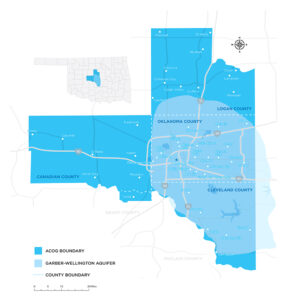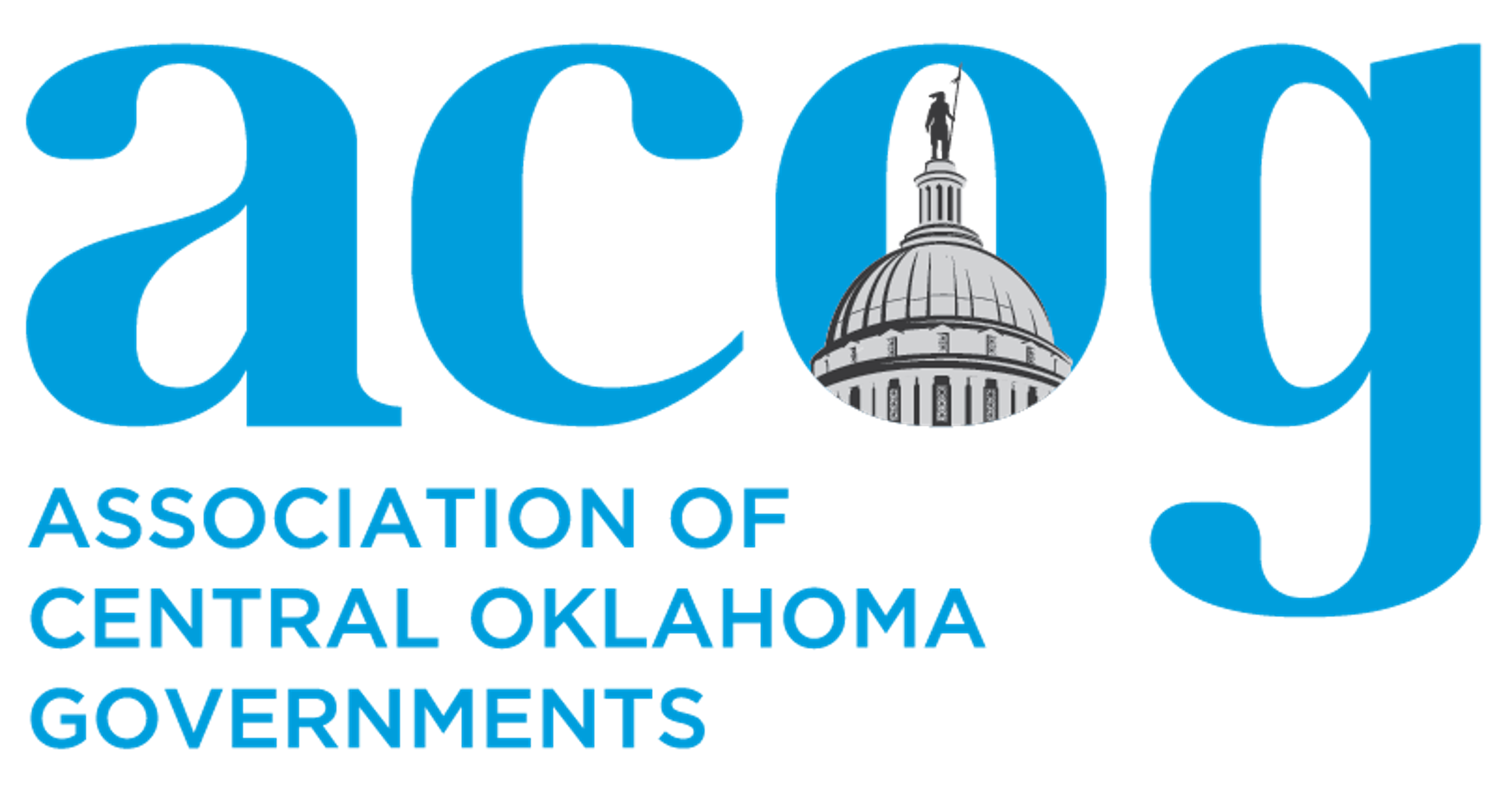Garber-Wellington Association Policy Committee
A resolution by the Board of Directors of the Association of Central Oklahoma Governments (ACOG) established the GWPC in 1979. The Garber-Wellington Association Policy Committee (GWAPC) is an association of the local governments who benefit from developing the resources of the Garber-Wellington aquifer and the alluvial aquifer systems. Over twenty municipalities produce water from the Garber-Wellington aquifer with a total production rate of roughly 5 billion gallons annually.
 The GWAPC implements programs and policies dedicated to groundwater resources and management. The Garber-Wellington Association staff is an extension of and serves as technical advisor to over 20 municipalities. This includes services ranging from water supply and water well location to underground storage tank removal and site remediation. The GWAPC collects and maintains extensive information databases on the Garber-Wellington aquifer. These databases include monthly pumping rates, water levels, oil and gas well activity, water quality analyses and well construction.
The GWAPC implements programs and policies dedicated to groundwater resources and management. The Garber-Wellington Association staff is an extension of and serves as technical advisor to over 20 municipalities. This includes services ranging from water supply and water well location to underground storage tank removal and site remediation. The GWAPC collects and maintains extensive information databases on the Garber-Wellington aquifer. These databases include monthly pumping rates, water levels, oil and gas well activity, water quality analyses and well construction.
Click on photo to enlarge.
Staff Contacts
John Harrington, P.G., CFM
Water Resources Director
Anita Kroth
Administrative Assistant
Administrative Services
GWAPC Meetings, Agendas & Reports
| 2024 Meetings | 2023 Meetings |
| February 29, 2024 | February 23, 2023 |
| April 25, 2024 | April 27, 2023 |
| June 27, 2024 | June 29, 2023 |
| August 29, 2024 | August 31, 2023 |
| October 31, 2024 | October 26, 2023 |
| December 12, 2024 | December 14, 2023 |
Garber-Wellington Association Policy Committee Officers
Chair: VACANT
Vice-Chair: Matt Dukes, Mayor, Midwest City
Secretary-Treasurer: David Bennett, Councilmember, The Village
GWAPC Program Objectives
The overall goal for the GWAPC staff is to provide continuing coordination and assistance to local governments for their groundwater systems and research efforts. Considering the large population that is directly dependent upon the potable waters it provides, this aquifer is the most important groundwater resource in the state. Therefore it is desirable to support a staff of water professionals and work program dedicated to the management and research of this most critical aquifer.
Supporting this technical effort at the local level has had distinct advantages. The staff can rapidly evaluate and respond to local problems quickly and effectively, especially when potential groundwater pollution is detected. Through the years of mutual data collection and maintenance of contact with Garber-Wellington Association members’ staff, the GWAPC staff is familiar with many well fields in the aquifer. This working relationship provides a good perspective on how each municipal system affects the aquifer regionally. Finally, staff participates in policy decisions at the local level, where an understanding of the municipal goals can be critical in proper groundwater management strategy.
